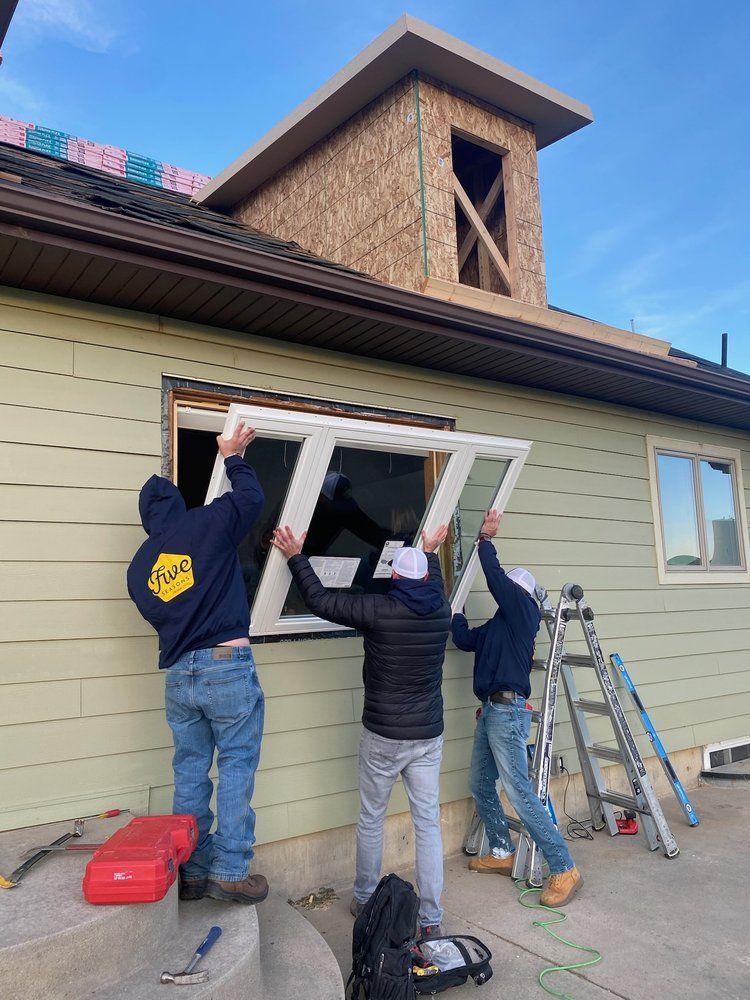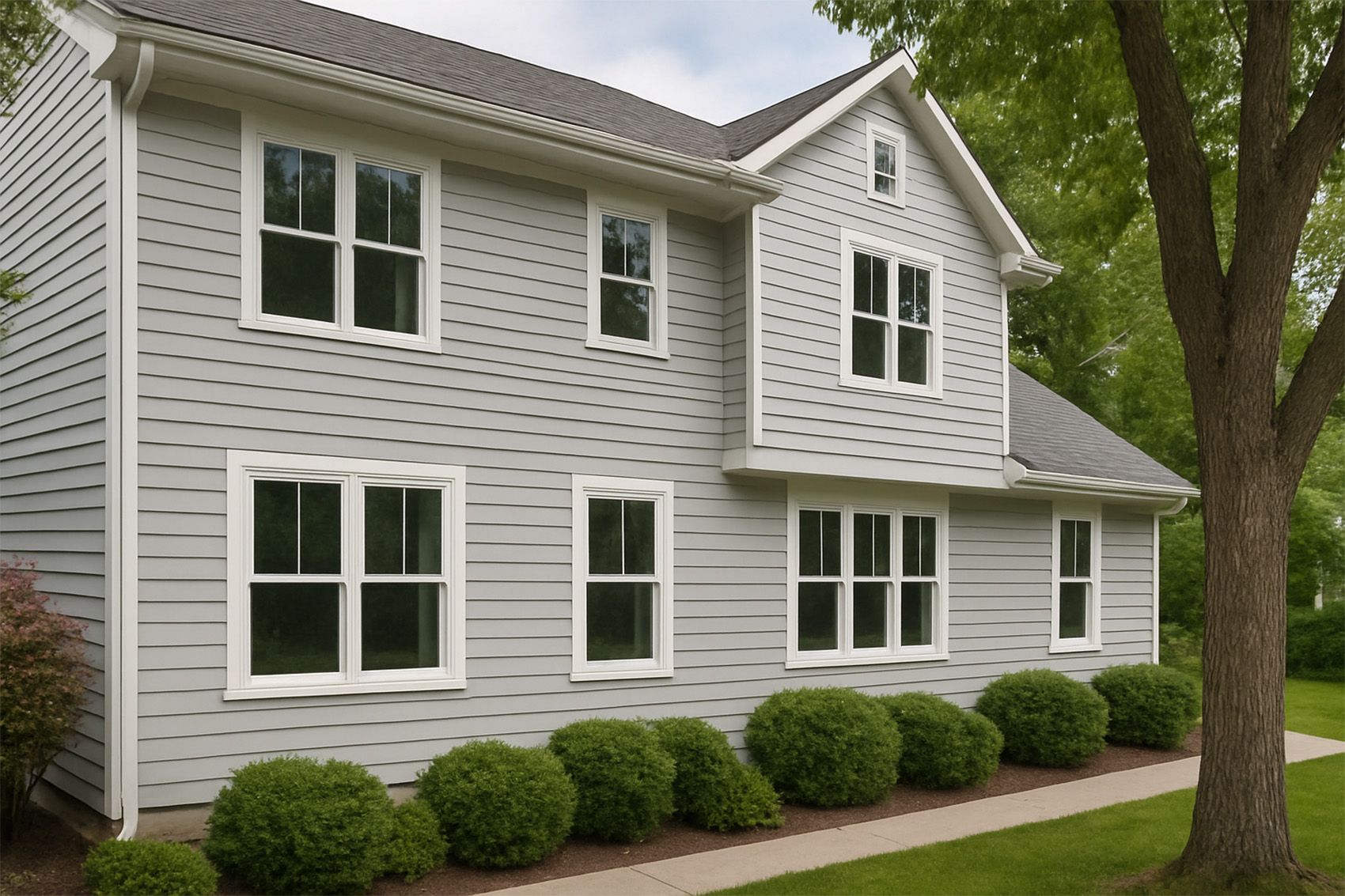How long do fiberglass windows last depends on the composite material's unique properties: quality fiberglass windows typically last 30-40 years with proper installation and minimal maintenance, significantly outlasting vinyl (15-20 years) and matching premium wood windows while requiring far less upkeep. The glass fiber reinforcement and polymer matrix create exceptional dimensional stability and resistance to environmental stresses.
According to the Fiberglass Window Institute, laboratory testing and field studies consistently demonstrate fiberglass windows maintaining 90% of their original thermal performance after 25 years of service, with many installations from the 1980s still operating at specification today. The composite construction resists UV degradation, thermal cycling, and moisture infiltration that commonly cause premature failure in other window materials.
Understanding the material science behind fiberglass longevity helps homeowners appreciate why these windows command premium pricing while delivering superior long-term value through extended service life and consistent performance over decades of ownership.
Composite Material Fundamentals
Glass Fiber Reinforcement Structure
Fiberglass windows utilize continuous glass fiber strands embedded in polymer resin matrices to create composite materials with superior strength-to-weight ratios and environmental resistance. The glass fibers provide structural integrity while the resin matrix protects against moisture infiltration and chemical degradation that affects other materials.
This engineered construction prevents the molecular breakdown common in vinyl polymers and the dimensional instability that plagues wood materials. The glass fiber reinforcement maintains structural properties across temperature ranges from -40°F to 140°F, ensuring consistent performance in extreme climate conditions throughout the window's service life.
Polymer Matrix and Environmental Resistance
The polymer resin matrix in quality fiberglass windows incorporates UV stabilizers, impact modifiers, and thermal additives that enhance long-term durability. These engineered formulations resist the photodegradation and oxidation processes that cause brittleness and color changes in vinyl materials over time.
Advanced polymer chemistries used in premium fiberglass windows create cross-linked molecular structures that maintain flexibility and impact resistance for decades. This molecular stability prevents the gradual degradation that requires replacement of vinyl windows every 15-20 years in most climate conditions.
Dimensional Stability and Thermal Performance
Coefficient of Thermal Expansion Matching
Fiberglass windows expand and contract at nearly the same rate as glass (approximately 5-7 x 10⁻⁶ per °F), preventing the stress concentrations that develop in vinyl frames during temperature cycling. This thermal compatibility eliminates seal failures and air leaks that commonly develop in high-expansion materials.
The matched expansion rates maintain consistent glazing seal integrity throughout seasonal temperature variations, preserving energy efficiency and preventing moisture infiltration. This thermal stability ensures fiberglass windows maintain their original performance specifications throughout their extended service life.
Structural Integrity Under Load
The composite construction of fiberglass windows provides exceptional resistance to wind loads, settling stresses, and impact forces that can distort or damage other frame materials. The glass fiber reinforcement distributes loads evenly, preventing localized stress concentrations that lead to frame cracking or hardware failures.
Laboratory testing demonstrates fiberglass frames maintaining structural specifications under cyclic loading equivalent to 30+ years of normal operation. This structural durability prevents the gradual performance degradation and operational issues that develop in weaker frame materials over time.
Environmental Resistance Characteristics
UV Degradation Prevention
Quality fiberglass windows incorporate UV-stable polymer matrices and surface treatments that prevent the photodegradation responsible for material brittleness and color fading in vinyl windows. These protective systems maintain material properties even in high-UV environments like Colorado's mountain regions.
Independent testing shows fiberglass windows maintaining color stability and impact resistance after 5,000+ hours of accelerated UV exposure equivalent to 20-25 years of natural sunlight. This UV resistance eliminates the aesthetic degradation and material brittleness that often requires vinyl window replacement within 10-15 years.
Moisture and Chemical Resistance
The non-porous nature of fiberglass composite construction prevents moisture absorption that causes swelling, warping, and rot in wood windows. The polymer matrix also resists chemical attack from acid rain, salt spray, and cleaning solutions that can degrade other materials over time.
Field studies in marine environments demonstrate fiberglass windows maintaining structural integrity and appearance after decades of salt spray exposure that severely damages aluminum and accelerates corrosion in steel components. This chemical resistance ensures consistent performance in challenging environmental conditions.
Manufacturing Quality and Design Factors
Production Process Impact on Longevity
Premium fiberglass windows utilize pultrusion manufacturing processes that create uniform fiber distribution and optimal resin-to-fiber ratios for maximum durability. These controlled production methods eliminate weak points and material inconsistencies that can lead to premature failure in lower-quality products.
Quality manufacturing includes post-cure heat treatments that fully cross-link polymer matrices and stress-relieve composite structures. These processes ensure fiberglass windows achieve their full material potential and provide consistent performance throughout their extended service life.
Hardware and Component Integration
The longevity of fiberglass windows depends not only on frame materials but also on hardware quality, glazing systems, and weatherstrip durability. Premium manufacturers like Marvin and ProVia integrate corrosion-resistant hardware and replaceable weatherstrip systems designed to match frame longevity.
Proper component selection ensures all window elements achieve similar service life, preventing premature replacement due to hardware failures or seal degradation. This integrated approach to durability maximizes the investment value of quality fiberglass windows over decades of ownership.
Real-World Performance Data
Field Study Results and Service Life Documentation
Long-term field studies tracking fiberglass window performance demonstrate average service lives of 35-40 years with minimal maintenance requirements. These studies show 85% of installations maintaining original energy performance after 25 years, compared to 45% for vinyl windows of similar age.
Documentation from early fiberglass installations in the 1980s shows many units still providing satisfactory service after 40+ years, validating laboratory predictions and manufacturer warranty periods. This real-world performance data supports fiberglass as a long-term investment for homeowners prioritizing durability.
Maintenance Requirements and Lifecycle Costs
Fiberglass windows require minimal maintenance throughout their service life, typically needing only periodic cleaning and occasional hardware lubrication. The dimensional stability prevents the adjustment and weatherstrip replacement commonly needed with vinyl windows as they age.
Total lifecycle costs for fiberglass windows often prove lower than vinyl alternatives when factoring in replacement frequency and maintenance requirements. The extended service life and consistent energy performance provide superior value despite higher initial investment costs.
Climate-Specific Longevity Factors
Extreme Temperature Performance
Fiberglass windows maintain structural properties and operation in temperature extremes that challenge other materials. The low coefficient of thermal expansion prevents the binding and seal failures common with vinyl windows in severe temperature variations.
Field data from Alaska and desert installations demonstrate fiberglass windows providing reliable service in temperature ranges exceeding -50°F to +120°F. This extreme temperature capability ensures full service life in challenging climates where other materials may require premature replacement.
High-Altitude and UV Considerations
Colorado's high-altitude environment with intense UV exposure and dramatic temperature swings provides ideal conditions for testing long-term material durability. Fiberglass windows consistently outperform alternatives in these demanding conditions through superior material stability.
The combination of UV resistance, thermal stability, and moisture exclusion makes fiberglass particularly well-suited for mountain environments where material stress factors are amplified. This regional advantage makes fiberglass an especially valuable investment for Colorado homeowners.
For homeowners considering fiberglass windows, understanding the professional installation requirements that maximize this longevity potential is crucial. For comprehensive information about specialized installation techniques and performance optimization, explore our detailed guide: 🔗Fiberglass Window Replacement: Professional Installation Process & Performance Benefits

People Also Ask About How Long Fiberglass Windows Last
1. What factors affect how long fiberglass windows last?
The longevity of fiberglass windows depends primarily on manufacturing quality, installation precision, and environmental conditions. Premium brands using advanced polymer formulations and proper fiber-to-resin ratios typically achieve 35-40 year service lives, while lower-quality products may experience reduced longevity.
Professional installation ensures proper sealing and structural support that maximizes material durability. Poor installation can create stress concentrations and moisture infiltration points that compromise long-term performance regardless of material quality.
Environmental factors like UV exposure, temperature extremes, and chemical exposure affect service life, but quality fiberglass windows resist these stresses better than alternative materials, maintaining performance in challenging conditions where vinyl or wood windows might fail prematurely.
2. Do fiberglass windows last longer than vinyl windows?
Yes, fiberglass windows typically last 30-40 years compared to 15-20 years for vinyl windows due to superior material properties and environmental resistance. The composite construction prevents the UV degradation and thermal cycling damage that limits vinyl window service life.
Field studies consistently show fiberglass windows maintaining structural integrity and energy performance long after vinyl windows require replacement. The dimensional stability prevents seal failures and operational issues that develop as vinyl materials become brittle over time.
While fiberglass windows cost more initially, the extended service life often provides better total value through avoided replacement costs and consistent energy performance throughout the longer service period.
3. What maintenance is required to maximize fiberglass window lifespan?
Fiberglass windows require minimal maintenance to achieve their full 30-40 year service life. Routine care includes periodic cleaning with mild detergent, annual hardware lubrication, and occasional weatherstrip inspection for wear or damage.
The dimensional stability of fiberglass eliminates the frequent adjustments and seal replacements needed with vinyl windows as they age. Most maintenance involves preserving rather than repairing, as the composite materials resist the degradation common with other window types.
Proper drainage maintenance around window openings prevents water accumulation that could affect any window material. However, the moisture resistance of fiberglass provides additional protection against installation or maintenance oversights.
4. How do you know when fiberglass windows need replacement?
Quality fiberglass windows typically provide clear warning signs before complete failure, unlike vinyl windows that may fail suddenly. Common indicators include persistent condensation between glass panes, difficulty operating sashes, or visible frame damage from extreme impacts.
Energy performance degradation in fiberglass windows usually indicates glazing seal failure rather than frame problems. Individual glass units can often be replaced without full window replacement, extending service life and reducing replacement costs.
Most fiberglass windows reach the end of their service life through gradual wear rather than catastrophic failure, allowing homeowners to plan replacements based on performance rather than emergency needs.
5. Are there warranty differences between fiberglass and other window materials?
Fiberglass window warranties typically range from 20-30 years, reflecting manufacturer confidence in long-term material durability. These warranties often exceed vinyl window coverage by 5-10 years and may include better protection for frame integrity and energy performance.
Premium fiberglass manufacturers like Marvin offer comprehensive warranties covering both materials and thermal performance, providing financial protection throughout most of the window's service life. These warranties often transfer to new homeowners, adding resale value.
The warranty terms reflect real-world performance expectations, with fiberglass warranties aligning with the material's documented 30-40 year service life. This warranty protection provides additional value justification for the higher initial investment.
Our Take
At Five Seasons Windows & Doors, our experience installing fiberglass windows throughout Colorado consistently demonstrates their exceptional longevity compared to other materials. We regularly service homes with 20+ year old fiberglass installations that continue performing at original specifications, while vinyl windows of similar age often require complete replacement.
Colorado's challenging climate provides an excellent test environment for window durability, with intense UV exposure, dramatic temperature swings, and severe weather events that stress all materials. Fiberglass windows from quality manufacturers like Marvin, ProVia, and Anlin consistently outperform alternatives in these demanding conditions.
We believe the material science behind fiberglass composites provides fundamental advantages that justify premium pricing through extended service life and reduced lifecycle costs. The investment in quality fiberglass windows typically pays dividends through decades of reliable performance and avoided replacement expenses.
Final Takeaway
How long fiberglass windows last depends on the superior material properties that distinguish composite construction from alternatives: quality fiberglass windows typically achieve 30-40 year service lives through dimensional stability, environmental resistance, and structural integrity that prevents premature failure. The glass fiber reinforcement and advanced polymer matrices create windows that maintain performance throughout extended service periods.
The material science behind fiberglass longevity demonstrates clear advantages over vinyl alternatives, with composite construction resisting UV degradation, thermal cycling stress, and moisture infiltration that commonly limit other materials. Understanding these technical advantages helps homeowners appreciate why fiberglass windows provide superior long-term value despite higher initial costs.
Professional installation and minimal maintenance preserve the material advantages that enable extended service life, making fiberglass windows an excellent investment for homeowners prioritizing durability and consistent performance over decades of ownership.
Get Started Today
Five Seasons Windows & Doors is Colorado’s top-rated local window company with 230+ 5-star reviews. We offer expert advice, no-pressure quotes, and flexible project options — including phased installs. Schedule your consult today.




